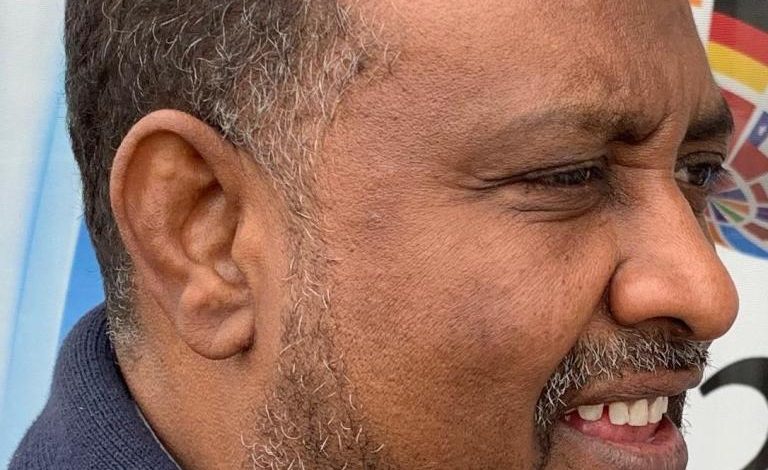When the Quartet Colludes… Is Sudan Being Assassinated in the Name of “Transition”?

By: Abdelaziz Yaqoub
Since the outbreak of war in Sudan between the Sudanese Armed Forces and the rebel Rapid Support Forces (RSF), the eyes of the “International Quartet” — the United States, Saudi Arabia, the United Arab Emirates, and Egypt (with the recent addition of the United Kingdom) — have not strayed from the unfolding conflict for a single moment.
This bloc, initially formed to support the democratic transition following the revolution, now finds itself entangled in questions of sovereignty and the consequences of war — caught between claims of neutrality and signs of bias, between principle and interest, and between embattled civilian forces lacking popular mandate and a national army fighting a battle for survival against an entity that rebelled from within and has relied on foreign support and mercenaries.
The Sudanese crisis has long transcended domestic concerns. It has become a mirror reflecting the systemic errors committed in the name of the “international community.” When a national military institution — despite its internal flaws — is equated with a separatist militia fighting in the name of the Dagalo family, a group that has committed atrocities, looted cities, threatened national unity, and spilled innocent blood, logic becomes distorted and principles violated.
There is no rational or moral justification for treating the state and its army as equal parties to a force that emerged from within the military establishment, turned against its leadership, received manpower from foreign mercenaries and logistical support from regional powers, all in blatant defiance of international agreements, sovereignty norms, and accepted military conventions.
The Quartet has never hidden its desire to halt the war — a position that is, in its essence, both legitimate and humanitarian. Yet the core problem does not lie in the intention, but in the mechanisms.
Is it reasonable to impose conditions on the state that hinder its ability to end the rebellion — all under the guise of negotiation?
Is it logical to elevate civilian forces that are unable to even organize a seminar within the country or console their own victims — forces without electoral legitimacy or popular backing — and task them alone with crafting the country’s future and dividing power as they see fit?
Is it acceptable to force the army into settlements that might encourage any future military unit to rebel, based on the precedent of international support for a militia that defied command, committed murders, rapes, and laid waste to the capital and its infrastructure?
The popular support now rallying around the Sudanese Armed Forces, driven by a bleeding patriotism and a sincere desire to salvage what remains of the nation, cannot be ignored or dismissed.
Those who emerged from displacement camps and returned from exile to their devastated homes in tears — they did not do so at the behest of the Quartet, nor in response to calls from forces cloaked in civility. They answered the call of the homeland and stood by the institution they see as the last symbol of hope.
The thousands who surged from the provinces — with no party banners or ideological slogans — did not march for any individual, but for their towns, villages, and dignity, believing the army to be the last bulwark against annihilation.
The most pressing questions are no longer being asked only in Khartoum, but also in Riyadh, Washington, Abu Dhabi, Cairo, and London:
Would any of these capitals accept the mutiny of a unit within their own armed forces and treat it as a negotiating partner?
Would they tolerate foreign actors dictating how, when, and where they resolve their internal conflicts?
If such a scenario is unacceptable in their own countries, why is it imposed on Sudan?
By what logic, and according to what ethical standard, is this double standard justified?
Have nations now come under trusteeship in the name of “transition”?
What the Sudanese people seek is justice, fairness, and healing.
Fairness does not mean overlooking the state’s missteps or granting it a blank check. But it also does not mean absolving the rebel forces or reintroducing chaos under the banner of peace.
Democracies — whether in the West or East — were not built atop the ruins of their national armies, but through reforming, purifying, and retraining them, then reintegrating them into the social contract — not dismantling them in favor of warlords and glory seekers atop the wreckage of nations.
Sudan, for all its structural ailments, is not a laboratory for foreign-imposed political engineering models.
And if the military institution has indeed erred — as its leaders themselves acknowledge — the path to reform does not pass through rebellion, but through supporting and rebuilding state institutions.
As for the civilian forces, let them begin by establishing transparent democratic parties that win the people’s trust not through foreign validation, but by appealing to national consciousness. Let them proceed to educate the public, then to the ballot box, to gain true legitimacy — not from closed hotel rooms, nor through grandstanding or platforms of foreign tutelage.
If the Quartet truly wishes to be part of the solution, rather than the crisis, it must humble itself before this great people, listen to them, rather than silencing them, and stop prescribing remedies that bear no relation to their reality.
The people do not want a defeated settlement that ignores popular balance, national dignity, state history, and Sudanese sovereignty. Such an agreement would not rebuild the nation or promote healing — it would deepen its bleeding.
I am convinced that the solution will not be crafted in distant capitals, but on Sudanese soil, at the hands of its sons, daughters, and youth.
Any imported, repackaged, and disconnected solution that ignores popular consciousness is but a carcinogenic medicine: it may numb the pain and alleviate the symptoms, but it does not cure the disease.
And God is the helper.



